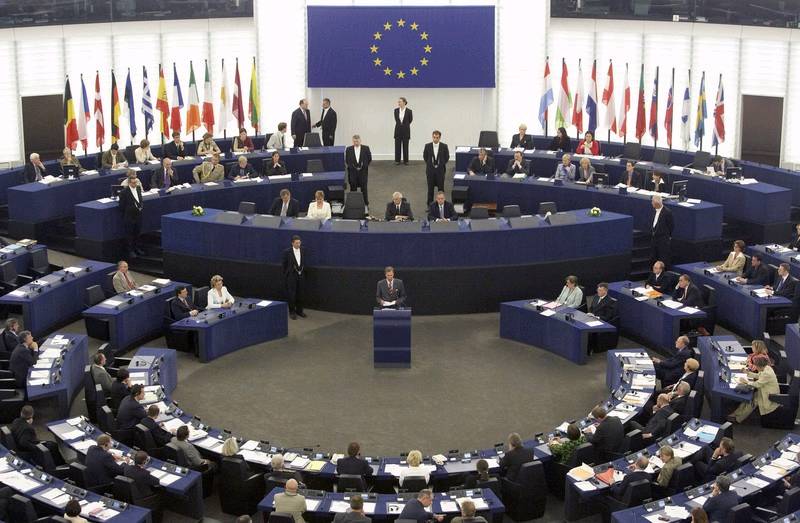 Yesterday marked a landmark in the run-up to the European Parliament elections - the one-month-to-go mark, and the beginning of the official campaigning season. On the 22nd of May, the 508 million people of the EU's 28 Member States will choose their representatives in the world's only directly elected supranational legislature.
Yesterday marked a landmark in the run-up to the European Parliament elections - the one-month-to-go mark, and the beginning of the official campaigning season. On the 22nd of May, the 508 million people of the EU's 28 Member States will choose their representatives in the world's only directly elected supranational legislature.It's a big moment. It has been five years since the last chance the European people had to make this decision, and it's safe to say that quite a bit has changed. The economic situation has improved - but crucially, nowhere near as much or as quickly as predicted. The balance of power in the European Parliament currently favours the European People's Party - the alliance of the Christian, conservative centre-right. That could be all about to change.
The dynamic in Europe has shifted since 2009. The prevailing wisdom of that time was austerity - cuts, cuts, cuts in public expenditure in a desperate attempt to bring the economic crisis under control. Five years on, austerity has had mixed success. Whilst it appears to have brought the immediate crisis under control, the wider economic problems of the continent have not been addressed and the economy of Europe is stagnating.
The effect of this disillusionment with the centre-right political mainstream has been a lurch to more extreme politics. The far-right are on the rise, and the leaders of the established political forces of the continent are worried. As well they might be.
In France, Marine Le Pen and her Front National have become the third-largest political force in the country. In the Netherlands, it is Geert Wilders and his Party for Freedom which has claimed the right-wing platform, its anti-immigration policies appealing to many in this time of economic turmoil. These groups are fast becoming powers in the emerging landscape of European politics, and look set to claim a considerable number of seats at the forthcoming elections.
Wilders and Le Pen represent the more respectable wing of the far-right movement - a fact which in and of itself should be profoundly disturbing. Others are more emphatic - Jobbik in Hungary are open in their anti-Semitic and anti-LGBT views, whilst Greece's Golden Dawn are self-declared neo-Nazis. All across the continent, the far-right is rearing its head.
In the UK, our own far-right party - the BNP - is mercifully set on what appears to be a course of self-destruction. For this, we should be glad, but we have - of course - a usurper to their vacated throne. UKIP, hovering in the murky political territory between the nasty-but-accepted Tories and the rightfully ostracised BNP, have expertly stolen the fascists' thunder.
Advocating unilateral withdrawal from the European Union, UKIP are currently second in the EU election polls and - if they follow the course they did five years ago - may well win. Whilst they are clearly infinitely preferable to their fascist and fascist-leaning counterparts on the continent, they still represent the same general sorts of feelings - anger at the dire straits the country finds itself in, and a self-righteous, indignant self-confidence that they know who to blame it all on. Just because the anti-foreigner brigade in this country are slightly less rabid, doesn't mean we should be gulled into thinking them balanced, reasonable individuals.
So in a month's time, when you go to cast your vote at the ballot box, think on this - what kind of a Europe do YOU want to see? United and strong - or divided and overrun by nationalist prejudices?
I know my answer.
No comments:
Post a Comment